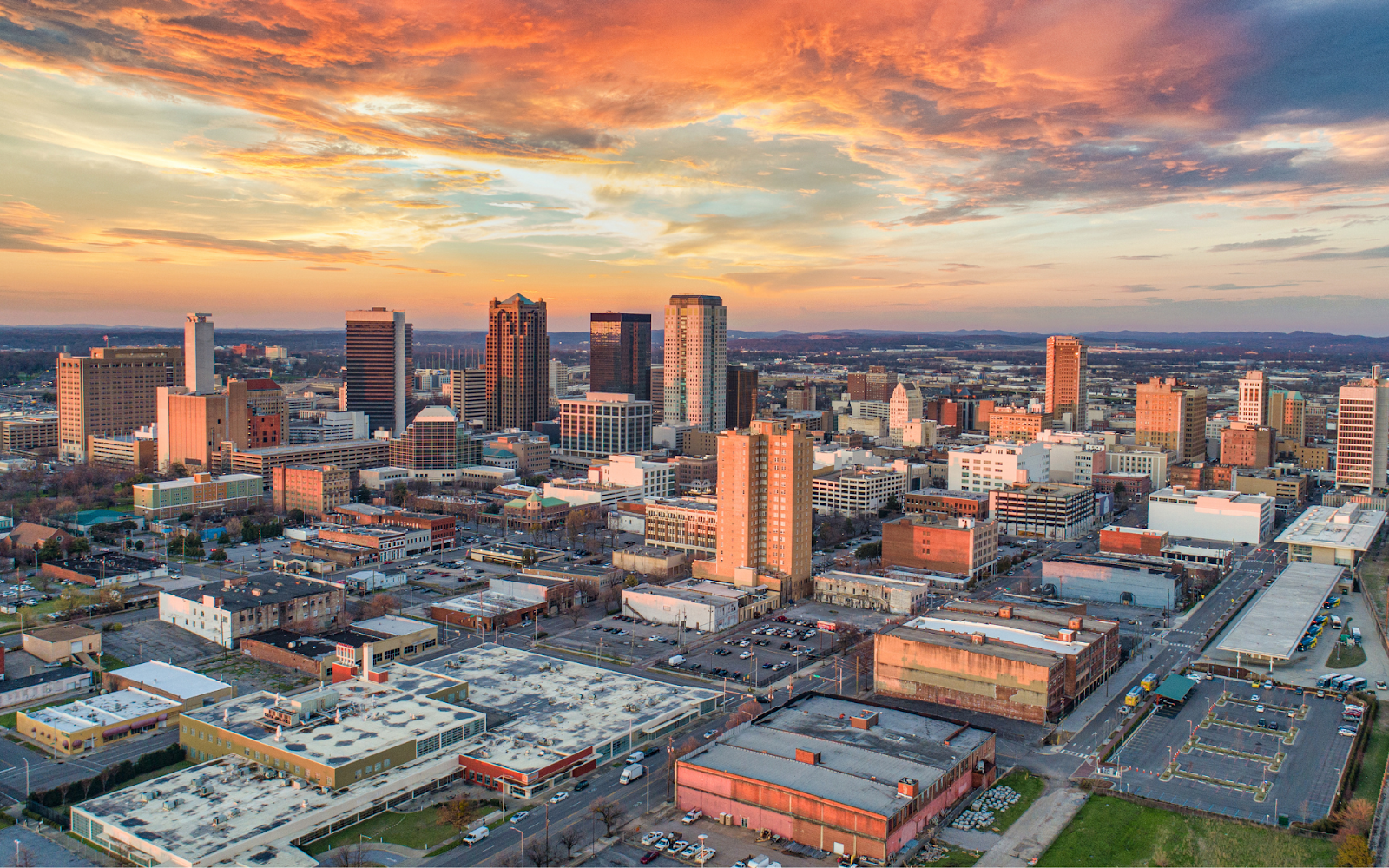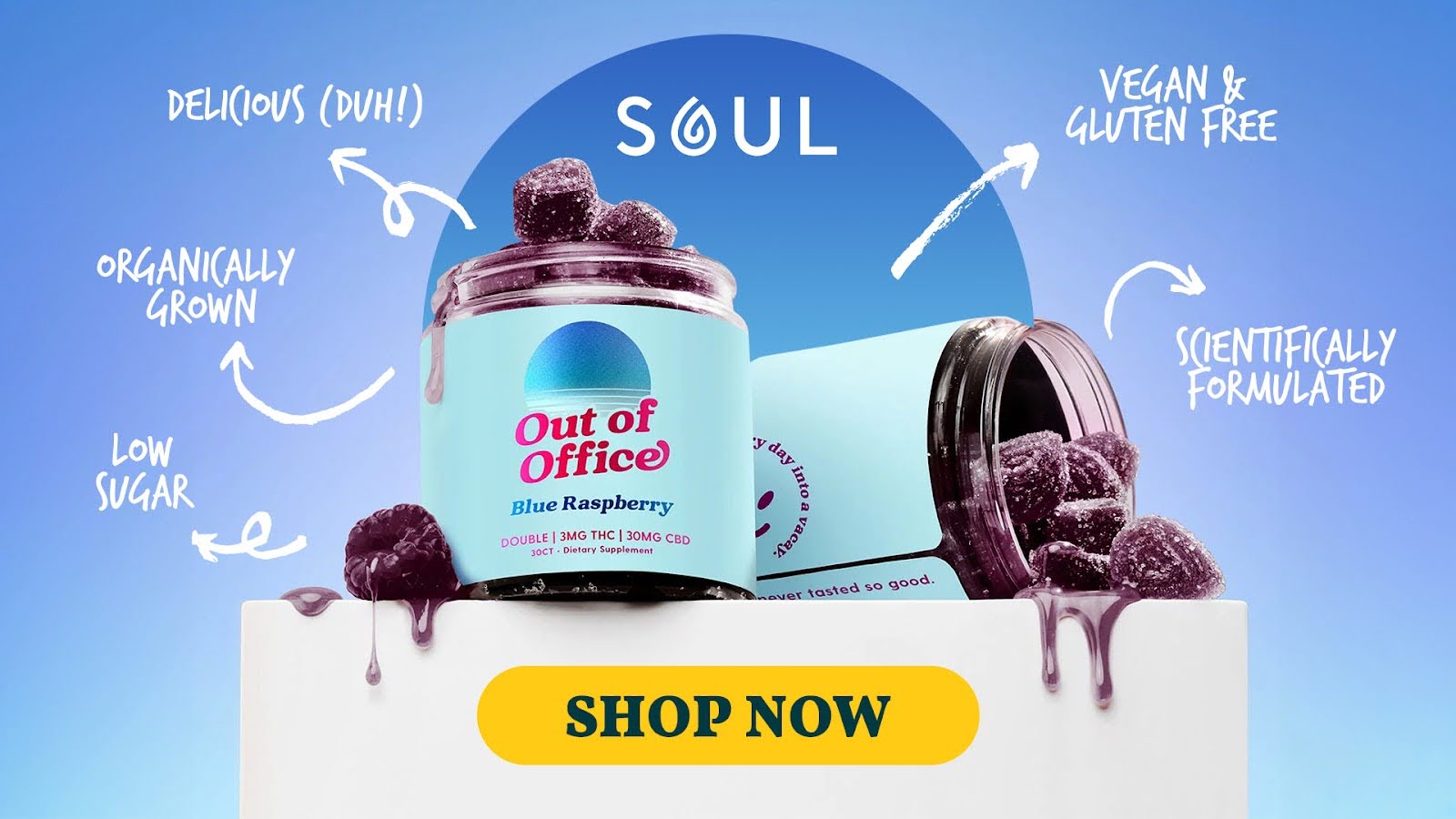
Key Takeaways:
- Legal Status Clarification: THC's recreational use remains illegal in Alabama, while its medical use is permitted under strict conditions for qualifying conditions.
- Legal Alternatives Available: Legal alternatives to THC, such as CBD products, kratom, and Delta-8 THC, are available in Alabama and provide similar benefits without the legal complexities of THC.
- Legislative Evolution: It is crucial to stay updated on legislative developments because the legalization of THC in Alabama may change due to shifts in public opinion and political pressures.
At Soul, we are dedicated to promoting wellness through hemp-derived products while abiding by local regulations and legal systems. Our products are formulated with this in mind, ensuring that our customers receive all the benefits of hemp within the framework of state law. We take pride in providing high-quality products and educating our customers on their legal and beneficial use.
This article will guide you through the legalities surrounding THC in Alabama for both medical and recreational use. We will discuss the current laws governing its possession and use and the penalties for violating these laws. Additionally, we'll explore how federal regulations impact state laws, discuss legal alternatives available within the state, and look at the potential changes in THC legislation. This comprehensive overview will equip Alabamians with the knowledge needed to navigate the complexities of THC use and compliance.
Understanding The Difference Between Medical And Recreational Use
In Alabama, the laws surrounding the use of tetrahydrocannabinol (THC) vary significantly between medical and recreational use.
Medical use of THC is permitted under specific conditions. The Alabama Medical Cannabis Commission is responsible for regulating and licensing medical cannabis for patients with qualifying conditions such as chronic pain, epilepsy, and multiple sclerosis. Patients must obtain a medical cannabis card and prescriptions are strictly regulated.
On the other hand, recreational use of THC is illegal in Alabama. The state does not recognize the recreational consumption of cannabis or its derivatives, and there are no laws in place that allow the possession or use of THC for non-medical purposes.
Current Laws Governing THC In Alabama
Comprehensive Drug Reform (2016)
Initiated to overhaul the way Alabama handles drug-related offenses, this reform aims to reduce the state’s overcrowded prison population by distinguishing between violent and non-violent drug offenders. This reform has altered the sentencing structures, introducing more lenient penalties for certain non-violent drug offenses, including some related to THC, to emphasize rehabilitation over incarceration. It also paved the way for subsequent legislation that would address the complexities of medical cannabis.
Alabama Medical Cannabis Act (2021)
This landmark legislation legalized the medical use of cannabis, specifically allowing products containing THC for patients with qualifying medical conditions such as severe nausea, chronic pain, or conditions treated with opioid medications. The act set up a tightly regulated system for cultivation, distribution, and prescription, requiring patients to obtain a medical cannabis card through a state-run program.
Farm Bill Compliance
As per the 2018 Federal Farm Bill, the state of Alabama permits the cultivation of hemp and the sale of hemp-derived products, provided they contain less than 0.3% THC by dry weight. This has given rise to a flourishing industry centered around CBD and other hemp products. However, products derived from cannabis that exceed the THC limit are still considered illegal under state law, except when prescribed for medical purposes.
Penalties For THC Possession In Alabama
Personal Use Possession
Possession of small amounts of THC for personal use is a serious offense in Alabama, classified as a misdemeanor. Offenders can face up to a year in jail and are subject to fines reaching $6,000. This level of penalty is often the baseline, with actual consequences varying based on prior convictions and the presence of aggravating factors.
Possession With Intent To Distribute
For individuals caught with larger quantities of THC, or where there is evidence suggesting an intent to distribute, the charge is elevated to a felony. This distinction leads to much steeper penalties, including potential prison sentences ranging from 1 to 10 years, and fines that can escalate depending on the amount of THC and the circumstances of the arrest.
Subsequent Offenses
Alabama law is particularly harsh on repeat offenders. If an individual has previous drug convictions, penalties for THC possession are increased. This might include mandatory minimum prison sentences, higher fines, and fewer opportunities for plea bargaining or sentence mitigation.
Medical Hemp Violations
Unauthorized possession or use of medical THC—such as possessing more than the prescribed amount or using it in non-approved forms—can be treated similarly to recreational possession, depending on the severity of the violation. For medical cardholders, non-compliance with the rules set forth by the Alabama Medical Cannabis Commission, such as public consumption or unauthorized distribution, can lead to the revocation of the medical card and the same criminal penalties as recreational use.
Impact Of Federal Laws On Alabama's THC Regulations
Banking And Business Operations
Because hemp remains illegal federally, cannabis-related businesses in Alabama face challenges in accessing banking services, as federal law restricts banks from servicing businesses that deal in controlled substances. This can complicate financial transactions and necessitate reliance on cash, increasing security risks and complicating tax payments.
Legal Risks And Enforcement
While medical hemp is legal in Alabama, the federal prohibition means that federal law enforcement agencies could technically enforce federal laws against hemp users and businesses, even if they are compliant with state law. This creates a legal gray area where compliance with state law does not protect individuals or businesses from federal prosecution.
Research Restrictions
The federal classification of hemp as a Schedule I drug also restricts research into its medical benefits, impacting states like Alabama that have legalized medical hemp. This limitation hampers the development and approval of new medical applications of cannabis.
Interstate Commerce
Federal laws prohibit the transportation of hemp across state lines, even between states where medical cannabis is legal. This affects Alabama businesses and consumers by limiting the sources and diversity of medical cannabis products available.
Potential For Change
There are ongoing discussions and efforts at the federal level to change hemp's legal status, which would have direct impacts on Alabama's regulations. Federal legalization or rescheduling of hemp would remove many of the existing conflicts between state and federal laws, likely leading to easier business operations, reduced legal risk, and expanded research opportunities.
Legal Alternatives To THC In Alabama
CBD Products
In Alabama, CBD derived from hemp with less than 0.3% THC is legal and available in various formulations, including oils, creams, edibles, and tinctures. These products are favored for their potential to alleviate conditions such as chronic pain, anxiety, and insomnia, without inducing the psychoactive effects associated with THC. The popularity of CBD is bolstered by its accessibility in local health food stores, pharmacies, and online platforms, making it a convenient choice for health-conscious consumers.
Kratom
Kratom, a natural substance from the leaves of the Mitragyna speciosa tree from Southeast Asia, is legal in Alabama and utilized for its pain-relieving and mood-enhancing properties. It acts on opioid receptors in the brain, making it a potential alternative for opioid withdrawal and chronic pain management.
Delta-8 THC
Delta-8 THC is a cannabinoid that exists naturally in cannabis but is often manufactured from hemp-derived CBD, making it legally distinct from Delta-9 THC (the primary psychoactive component in hemp). While it has psychoactive properties, they are less potent than those of Delta-9 THC, offering a "milder" high that some users prefer for relaxation and stress relief.
Non-psychoactive Cannabinoids
CBG is gaining recognition for its anti-inflammatory, antibacterial, and neuroprotective properties, making it a compelling option for those seeking wellness without intoxication. CBN, often found in aged cannabis, is researched for its potential benefits in sleep regulation and pain relief. These cannabinoids are found in similar product forms as CBD and are becoming more widely available as consumer interest grows.
Herbal Supplements
St. John's Wort is popular for its effectiveness in treating mild to moderate depression, while valerian root is commonly used for its sedative qualities and ability to improve sleep quality. Ashwagandha, an adaptogen, is revered for its ability to reduce stress and improve cognitive function. These herbs are available in various forms, such as capsules, teas, and tinctures, providing natural alternatives to pharmaceuticals for managing health and wellness.
Future Outlook On THC Legislation In Alabama
The future of THC legislation in Alabama could be influenced by several factors, including public opinion, medical research, and political shifts. Here are some possibilities:
- Increased Medical Acceptance: As more research supports the medical benefits of THC, there could be a push to expand the conditions qualifying for medical cannabis use in Alabama.
- Recreational Legalization Trends: With many states moving towards the legalization of recreational cannabis, Alabama might face increased pressure to reconsider its strict prohibition stance, especially if public opinion continues to shift.
- Federal Decriminalization: Any changes at the federal level, such as decriminalizing or rescheduling cannabis, could drastically influence state-level policies, potentially leading to a softer approach towards THC.
- Advocacy and Public Opinion: Increasing advocacy efforts and changing public opinions could drive legislative changes. Public campaigns and voter initiatives might emerge as pivotal factors in shaping policy.
- Legal Precedents: Judicial decisions, either at the state or federal level, could set precedents that alter the enforcement or interpretation of existing laws concerning cannabis.
Final Thoughts
Navigating the legalities of THC in Alabama requires careful attention to both state and federal laws. Alabamians should be aware that while medical THC is permitted for certain conditions, recreational use remains illegal. Legal alternatives like CBD, kratom, and Delta-8 THC provide viable options for those seeking wellness benefits without legal risks. It's essential for residents to stay informed about ongoing legislative changes that could influence THC's legal status in the future. By understanding current laws and remaining vigilant about potential updates, Alabamians can responsibly manage their use of THC and related products.
Read also:
Frequently Asked Questions About THC Legality In Alabama
How do I apply for a medical hemp card in Alabama?
To apply for a medical hemp card in Alabama, a patient must receive a diagnosis from a certified doctor who is registered with the Alabama Medical Cannabis Commission. The patient then applies through the state's designated process, which includes submitting medical records and a registration fee.
Are there any legal protections for employees who use medical hemp in Alabama?
Currently, Alabama does not provide explicit employment protections for medical hemp users. This means employers can enforce drug-free workplace policies that restrict the use of hemp.
How do Alabama laws address the cultivation of cannabis for personal medical use?
Personal cultivation of cannabis, even for medical purposes, remains illegal in Alabama. All medical cannabis must be purchased from a licensed dispensary.
What legal resources are available for individuals prosecuted for THC possession in Alabama?
Individuals prosecuted for THC possession in Alabama may seek legal aid from organizations such as the American Civil Liberties Union (ACLU) or local attorneys specializing in drug-related cases.
Can landlords prohibit the use of legal THC products by tenants in Alabama?
Landlords in Alabama can prohibit the use and possession of THC products on their property through lease agreements, particularly since recreational use remains illegal and public smoking is restricted.
What are the specific labeling and testing requirements for THC products sold in Alabama?
THC products in Alabama must comply with state regulations that require clear labeling of THC content and adherence to safety and purity standards set by state law.
How does Alabama law treat the use of THC products by minors under medical supervision?
THC products can be used by minors under medical supervision in Alabama if they have a qualifying condition and the product is prescribed by a certified physician. Parental consent and involvement are required.
What is the process for changing the classification of THC under Alabama state law?
To change the classification of THC under Alabama state law, legislation must be introduced and passed by the state legislature and signed by the governor.
Are THC-infused edibles legal in Alabama under the medical hemp program?
THC-infused edibles are legal under Alabama’s medical hemp program for registered patients with qualifying conditions.
Which advocacy groups are currently working towards changing the THC laws in Alabama?
Groups such as the Alabama Cannabis Industry Association and NORML are active in advocating for more progressive cannabis laws in the state.
Sources:
- Hansen, C., Alas, H., & Davis Jr., E. (2021, June 30). Where Is Marijuana Legal? A Guide to Hemp Legalization. US News & World Report. https://www.usnews.com/news/best-states/articles/where-is-Marijuana-legal-a-guide-to-Hemp-legalization
- Washington DC Hemp Laws | WashingtonDCCannabis.org. (n.d.). Washington D.C. Cannabis Information Portal. https://washingtondccannabis.org/laws
- Inc, G. (2021, November 4). Support for Legal Marijuana Holds at Record High of 68%. Gallup.com. https://news.gallup.com/poll/356939/support-legal-Marijuana-holds-record-high.aspx
- Dorbian, I. (n.d.). Despite Some Stumbles, Total Sales In U.S. Cannabis Market Could Soar To $50.7 Billion By 2028, Says Top Researcher. Forbes. Retrieved October 18, 2023, from https://www.forbes.com/sites/irisdorbian/2023/02/15/despite-some-stumbles-total-sales-in-us-cannabis-market-could-soar-to-507-billion-by-2028-says-top-researcher/?sh=1f90e293164d






